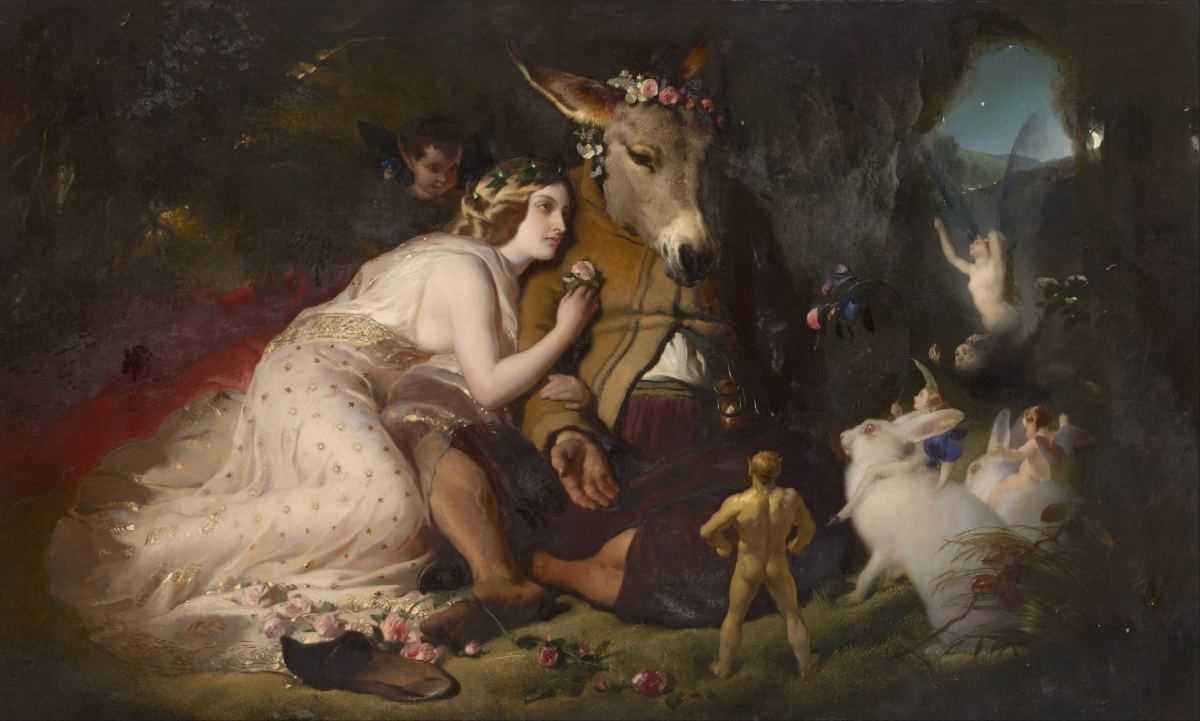
Will love potions be the future of relationships?
Evolution has designed us for shorter relationships
Titania in love with Bottom, in A Midsummer Night's Dream / Edwin Landseer
The transhumanist impulse to supplement reasoning and will with technology is on display in a startling new book from two academics from Oxford University. In Love Drugs: The Chemical Future of Relationships, bioethicists Brian D. Earp and Julian Savulescu argue that biochemical interventions can strengthen relationships.
Their book builds a case for conducting research into “love drugs” and “anti-love drugs” and explores their ethical implications for individuals and society.
Scandalously, they contend, Western medicine tends to ignore the interpersonal effects of drug-based interventions. Why are we still in the dark about the effects of these drugs on romantic partnerships? And how can we overhaul scientific research norms to take relationships more fully into account?
Drugs for love and relationships are not some far-off speculation. Our most intimate connections are already being influenced by drugs we ingest for other purposes. Controlled studies are underway to see whether artificial brain chemicals can enhance couples therapy. The authors even claim that conservative religious groups are experimenting with certain medications to quash romantic desires among children and vulnerable sexual minorities.
Part of the reason why drugs are needed to maintain relationships, they say, is that human beings evolved to have much shorter spans of romantic attachment. “Our capacity for love did not evolve to support lifelong relationships in contemporary societies. Rather, it evolved to support our ancestors' reproductive success under social conditions that for the most part no longer exist. Now that people are living longer, healthier lives, drugs might be needed to keep love alive.
A moment’s reflection suggests that latter-day love potions could be dangerous as well as therapeutic. If drugs can change the object of desire, the born-that-way philosophy of the LGBTQI+ movement collapses. Chemicals could be used to destroy relationships.
Many questions remain to be answered, Earp and Savulescu admit:
“Will knowing how love works, and even shaping it through hormones and chemistry, rob it of its importance in our lives? Or will it empower us to make our most intimate relationships more reliably consistent with real human flourishing?”
Michael Cook is editor of BioEdge.
Creative commons
https://www.bioedge.org/images/2008images/Edwin_Landseer_-_Scene_from_A_Midsummer_Nights_Dream._Titania_and_Bottom_-_Google_Art_Project-e1508087459713_(1)_.jpg
- How long can you put off seeing the doctor because of lockdowns? - December 3, 2021
- House of Lords debates assisted suicide—again - October 28, 2021
- Spanish government tries to restrict conscientious objection - October 28, 2021
